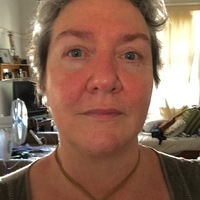- Rm 121 Macleay Building (A12)
School of Biological Sciences
The University of Sydney
NSW 2006 AUSTRALIA - +61 2 9351 3707
I am a tertiary educator and a biologist. For more than two decades I have developed, taught and coordinated a range of units of study (courses). My roles as a researcher, curriculum developer, teacher and assessor, are contextualised... more
I am a tertiary educator and a biologist. For more than two decades I have developed, taught and coordinated a range of units of study (courses). My roles as a researcher, curriculum developer, teacher and assessor, are contextualised primarily in the Life Sciences. While having been a committed teacher I have extended my own practice to influence that of others, both in my field and more widely across the university. This application for Senior Fellow offered evidence and examples of my sustained and significant contributions that met the requirement of Descriptor 3 of the UKPSF.
This applications included two case studies. Case study 1 addressed Botanical Literacy using m-learning and described how I have extended the approach taken for botanical literacy into a means to engage with the development of cultural competence. Case study 2 focused on my leadership where I have mentored teaching-constrained colleagues to find their own career opportunities in order to reimagine their career pathways.
This applications included two case studies. Case study 1 addressed Botanical Literacy using m-learning and described how I have extended the approach taken for botanical literacy into a means to engage with the development of cultural competence. Case study 2 focused on my leadership where I have mentored teaching-constrained colleagues to find their own career opportunities in order to reimagine their career pathways.
Research Interests:
CampusFlora transforms the outdoor spaces of our campuses into community learning spaces. By using mobile apps to offer scientific botanical [#iamabotanist], ethnobotanical and cultural narratives, constructed through both scholarly... more
CampusFlora transforms the outdoor spaces of our campuses into community learning spaces. By using mobile apps to offer scientific botanical [#iamabotanist], ethnobotanical and cultural narratives, constructed through both scholarly partnerships between faculty and students, the social sustainability of our learning spaces is enhanced.
Developer Website: https://campusflora.wordpress.com/
WebApp: http://campusflora.sydneybiology.org/ > the Patyegarang Trail offers the botanical vocabulary of the Sydney Aboriginal Language
iOS App: https://itunes.apple.com/au/app/campus-flora/id918408102
Google Play: https://play.google.com/store/apps/details?id=com.universityofsydney.campusflora&hl=en
Developer Website: https://campusflora.wordpress.com/
WebApp: http://campusflora.sydneybiology.org/ > the Patyegarang Trail offers the botanical vocabulary of the Sydney Aboriginal Language
iOS App: https://itunes.apple.com/au/app/campus-flora/id918408102
Google Play: https://play.google.com/store/apps/details?id=com.universityofsydney.campusflora&hl=en
Research Interests:
Crafting innovative botanical resources to inspire students to learn about the wonderful world of plants and the complexity of botanical systems has been my aim for the past 22 years. The learning resources I developed contribute to a... more
Crafting innovative botanical resources to inspire students to learn about the wonderful world of plants and the complexity of botanical systems has been my aim for the past 22 years. The learning resources I developed contribute to a worldwide effort from botanists to improve botanical literacy and address plant blindness (#iamabotanist). Closer to home, connecting students across science to our Australian flora is essential if we are to have botanically literate graduates and, nationally, botanical literacy is critical for a sustaining and managing our agricultural and ecological systems.
Research Interests:
Completion certificate (2016) from Deputy Vice Chancellor Education.
Research Interests:
CampusFlora apps transform campuses into learning spaces for biology by offering scientific botanical and ethnobotanical narratives constructed through student and staff partnerships. #iamabotanist The CampusFlora Team Project lead:... more
CampusFlora apps transform campuses into learning spaces for biology by offering scientific botanical and ethnobotanical narratives constructed through student and staff partnerships. #iamabotanist
The CampusFlora Team
Project lead: Rosanne Quinnell
iOS and RubyOnRails: Xiaolong Wang, Lachlan Pettit, Angela Pursey, Nic Barker, Caroline Cheung, Grant Zeng, Matthew Pye, Satyendra Sinha,
Android App: Scott Dong, Alex Ling, Simon Baeg, Liam Huang, Kevin Ahn, Michael Johnston, Ahmed Jamal Shadid.
The CampusFlora Team
Project lead: Rosanne Quinnell
iOS and RubyOnRails: Xiaolong Wang, Lachlan Pettit, Angela Pursey, Nic Barker, Caroline Cheung, Grant Zeng, Matthew Pye, Satyendra Sinha,
Android App: Scott Dong, Alex Ling, Simon Baeg, Liam Huang, Kevin Ahn, Michael Johnston, Ahmed Jamal Shadid.
Research Interests:
The 2016 Faculty of Science Learning and Teaching Award was given to Rosanne Quinnell for her ongoing commitment to student learning in Biology, in particular the developments in BotanyOnline and the CampusFlora app. CampusFlora has an... more
The 2016 Faculty of Science Learning and Teaching Award was given to Rosanne Quinnell for her ongoing commitment to student learning in Biology, in particular the developments in BotanyOnline and the CampusFlora app. CampusFlora has an influence well beyond its origins in a single intermediate Botany unit, with uses throughout the Life Sciences curriculum from first year lab classes on floral morphology to assisting PhD candidates locating their social insects!
